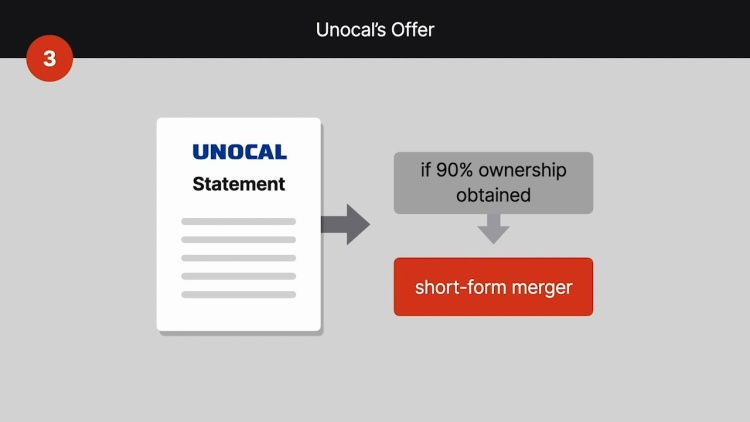In re Pure Resources, Inc. Shareholders Litigation
Delaware Court of Chancery
808 A.2d 421 (2002)
- Written by Katherine Li, JD
Facts
Unocal Corporation (Unocal) (defendant) owned 65.4 percent of Pure Resources, Inc. (Pure) stock. Pure’s management controlled between a quarter and a third of Pure stock. There were five Unocal-designated directors, two management-designated directors, and one jointly designated director. Unocal had a business-opportunities agreement, which provided that as long as Unocal owned 35 percent of Pure, Pure’s business activities would be limited and Unocal could compete with Pure. Pure’s management had put agreements with Unocal that provided the managers better incentives than common shareholders when tendering shares. Unocal had access to Pure’s nonpublic information. Unocal made an offer to buy the rest of Pure’s stock. The offer contained a nonwaivable majority-of-the-minority provision, a waivable condition that the tender give it 90 percent ownership, and a planned second-step, short-form merger. The “minority” included shareholders who were affiliated with Unocal and Pure’s management. An independent special committee was formed to consider the offer. The committee retained its own advisors and negotiated the offer price with Unocal. The special committee did not deal with Unocal as aggressively as it would have with a third-party bidder, such as by adopting a poison pill. Unocal refused to raise its price, and the special committee voted against the offer. Pure’s minority shareholders (plaintiffs) sought a preliminary injunction. The shareholders alleged that the offer was inadequate and should be subject to the entire-fairness standard. The defendants argued that the offer should be subject not to the entire-fairness standard, but to the Solomon standard, which they had met. Solomon v. Pathe Communications Corp., 672 A.2d 35 (Del. 2010).
Rule of Law
Issue
Holding and Reasoning (Strine, J.)
What to do next…
Here's why 911,000 law students have relied on our case briefs:
- Written by law professors and practitioners, not other law students. 47,100 briefs, keyed to 997 casebooks. Top-notch customer support.
- The right amount of information, includes the facts, issues, rule of law, holding and reasoning, and any concurrences and dissents.
- Access in your classes, works on your mobile and tablet. Massive library of related video lessons and high quality multiple-choice questions.
- Easy to use, uniform format for every case brief. Written in plain English, not in legalese. Our briefs summarize and simplify; they don’t just repeat the court’s language.





